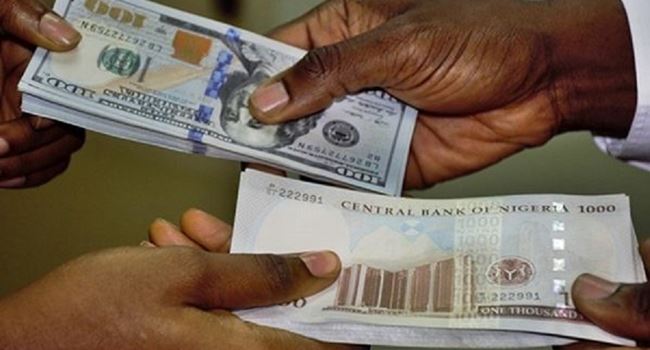Recent developments have improved the outlook for the Nigerian naira, raising the possibility of it trading below the N1000/$ mark in the black market. These developments include reports of the Central Bank of Nigeria (CBN) preparing to fulfill its forward foreign exchange (FX) obligations and a dovish statement from the U.S. Federal Reserve.
Unverified reports suggest that the CBN is set to meet 75–80% of its outstanding matured foreign exchange forwards through select Nigerian banks. This move could help ease FX liquidity constraints.
Federal Reserve Chairman Jerome Powell’s remarks following a two-day policy meeting contributed to a weakened U.S. dollar. His statement implied that further interest rate hikes by the Federal Reserve might be less likely, which positively impacted global FX markets.
While the Federal Open Market Committee kept interest rates steady at a range of 5.25% to 5.50%, it did not rule out future rate hikes.
JPMorgan Chase and Co. anticipates that the naira-to-U.S. dollar exchange rate could strengthen towards N850 by year-end. This is attributed to tighter regulations, attractive interest rates, and favorable FX levels, which could discourage dollarization and attract foreign capital into Nigeria.
The tier-1 American bank also foresees efforts to reinstate a flexible exchange rate regime in Nigeria, which could help narrow the gap between the parallel market rate (currently slightly over 1,000 naira) and the interbank exchange rate (recently increased from 750 to over 900 naira against the dollar).
The Nigerian government intends to introduce new regulations in the forex market to strengthen the naira’s value and curtail illicit currency trading. These regulations aim to divert supplies from the black market to the official market, encompassing all legal transactions.
Wale Edun, Nigeria’s finance minister, expects the country to receive $10 billion in inflows in the coming weeks, which could ease liquidity and resolve overdue forward contracts that are affecting the naira’s value.
Edun also mentioned that President Bola Tinubu signed two executive orders, one allowing dollar-denominated instruments to be issued and sold to Nigerian citizens with dollars and the other permitting dollar-denominated bonds to be issued and sold to Nigerians abroad and foreign investors. These measures are part of the government’s efforts to stabilize the FX market.
Overall, these factors, including CBN action, Federal Reserve policy, regulatory changes, and capital inflows, could contribute to a more favorable exchange rate for the naira, potentially approaching the N1000/$ mark in the black market.


